 |
| Thomas J. Lawley, Dean |
The right care, right now, every time
When an energetic Tim Buchman came to Emory two years ago to streamline and integrate critical care within Emory Healthcare, one of his first goals was to make sure every ICU was staffed 24/7 with a nurse practitioner or physician assistant specializing in critical care.
In addition, every unit now has a medical director. He believes that every critical care patient at Emory should receive "the right care, right now, every time." This has become a creed for everyone who works with Buchman, the founding director of the Center for Critical Care.
Because his branch of medicine can be the most resource-intensive of all inpatient care, Buchman currently is developing an overall operational plan that details the processes that must take place when a critically ill or injured patient is admitted to an Emory Healthcare ICU. "Not all patients need care at the same level, but they all can be managed by the same processes," he says.
Clinicians in our ICUs come from such diverse professional backgrounds as pulmonary medicine and surgical intensive care so he is underwriting interdisciplinary training sessions to improve communication and encourage team building. At one recent session, the team had to work through a hypothetical scenario that included rescuing medical professionals held hostage by foreign rebels. The participants had to develop a plan to get the hostages out of danger and home safely—much as they have to do with many of their patients.
Along with processes, Buchman also is focusing on ICU design. On 11-South at Emory University Hospital Midtown (EUHM), Buchman's team is building a next-generation ICU that will become the standard design for all Emory Healthcare ICUs. Patient rooms each will be 313 sq. ft., a size that's 83% bigger than current ICU rooms. Each room will have space for family members, including a computer desk.

In the new design, nursing workstations will be located between every two patient rooms with wide windows (above, yellow half-hexagons) into the rooms. Each room will have a camera to send images to a team theater where health care providers will develop a plan to ensure that each patient gets complete and consistent care. The team theater will have eight large screens, much like an air traffic control center, that will facilitate rapid identification of patient needs.
The new ICU also will feature quiet care. "Go into the average ICU today and the first thing you are assaulted by is noise," says Buchman. "Of course it is important to receive and respond to alerts. But why generate the alerts next to the patient? Let's send them directly to the caregiver." The monitoring instruments will send alerts to the workstations or to a "voice badge" that nurses can wear on their lanyards to help them monitor patients as they move about the unit.
These ideas will be incorporated in Emory University Hospital's new bed tower—more than half of the 210 beds will be for critical care—and EUHM's new 12-bed cardiothoracic ICU. At Midtown, a bridge will be built to connect the OR and the ICU so postoperative patients can travel from one to the other without having to enter an elevator.
Redesigning critical care now is of particular importance since Atlanta's population is graying. "We're on the cusp of not having enough critical care physicians," says Buchman. In metro Atlanta, the population of individuals aged 65 and older will rapidly increase by 38% between 2010 and 2015. As a result, demand for these physicians will outstrip supply by as early as next year.

Haupert takes the helm at Grady
 |
| John Haupert |
Grady Health System CEO John Haupert's first day on the job was Oct. 3. He hit the ground running the first week with meetings with Fulton and DeKalb county commissioners to find common ground on what it will take to keep Grady out of the financial troubles it has suffered in the past.
Haupert comes to Grady from Parkland Hospital and Health System, one of the largest public health systems in the country, located in Dallas, Texas. Haupert was in charge of operations at Parkland Memorial Hospital and its 11 community-oriented primary health clinics, 11 school-based clinics, a mobile homeless health program, Parkland's outpatient clinics, and the health delivery system for Dallas County jails. He was instrumental in overseeing the beginning stages of Parkland's new 862-bed health care campus, which broke ground last year and is projected to cost $1.27 billion.
The SOM has nearly 285 full-time faculty at Grady and 363 residents, who, together with Morehouse School of Medicine, handle 545,000 patient visits annually. In addition, the SOM and Morehouse School of Medicine are currently negotiating a new contract with Grady, and we are very hopeful for a bright future for Grady under Haupert's tenure.

Update on chair searches
The SOM has a shortlist of candidates for the chair of the Department of Cell Biology. Under new leadership and with further expansion, the department will help promote our commitment to make Emory one of the nation's premier biomedical research facilities. We are tremendously grateful for the work that Barry Shur, who led the department from 1996 to 2010, has already done to foster that goal.
In addition, there is a national search under way for the chair of urology. Fadlo Khuri, chair of the Department of Hematology and Oncology, and Tim Olsen, chair of ophthalmology, are heading the search. Chad Ritenour serves as interim chair of urology.

In memoriam
The SOM's faculty was deeply saddened with the deaths of Paul Fernhoff, associate professor of human genetics and pediatrics, on Sept. 19 and Willis Hurst, professor emeritus of medicine, on Oct. 1. Fernhoff was a respected geneticist and compassionate pediatrician at Emory for more than 30 years, and Hurst, 90, was a nationally renowned cardiologist at Emory for 56 years who continued teaching well into his 80s.
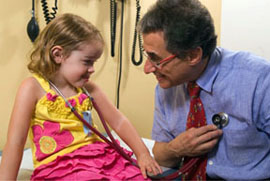 |
| Paul Fernhoff |
"Paul was, in many ways, the heart and soul of the department and will be deeply missed," says Steve Warren, chair of human genetics. "His career was devoted to improving infant and child health and promoting widespread genetic screening for infants." Fernhoff served as medical director of new genetic counseling training program and the Lysosomal Storage Disease Center. He directed clinical trials for lysosomal storage diseases that have led to effective control of many of these disorders.
Fernhoff also was extremely active in his community. He served as medical director of the Atlanta Jewish Gene Screen program, an initiative which provides carrier screening and reproductive options for young Jewish adults, and as medical director of the Pediatric Program of Hospice Atlanta, one of the largest children's hospice programs in the country. Fernhoff is survived by his wife, Deborah Finkelstein Fernhoff, and a daughter and son.
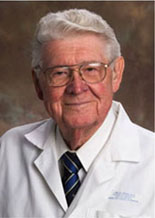 |
| Willis Hurst |
Hurst was a compassionate clinician and devoted teacher, mentor, husband, father, and grandfather. He was an author who co-edited the seminal cardiology textbook, The Heart. He also was well known as President Lyndon B. Johnson's personal cardiologist. He joined the Emory faculty in 1950, served as professor and chair of the Department of Medicine from 1957 to 1987, and was a founding architect of The Emory Clinic, which was established in 1953.
Throughout his 55-year career, Hurst taught more than 5,000 medical students and 2,500 residents and fellows, which is equivalent to one-fifth of all practicing physicians in Georgia. He received numerous awards for his work, including the highest teaching awards from the American College of Cardiologists and the American College of Physicians. He was a past recipient of Emory's Crystal Apple teaching award, and medicine's residency program was named in his honor in 2003.
Hurst was preceded in death by his wife of 61 years, Nelie. They had three sons. Hurst's grandson, Stuart, who graduated last year from the SOM, is currently a resident at Emory.

Spotlight on Human Genetics
In the decade since Stephen Warren was named chair of human genetics, the department has skyrocketed to national prominence. The department was founded in 2001 through restructuring the existing Department of Genetics and incorporating the entire Division of Medical Genetics from the Department of Pediatrics. At that time, Warren's goal was simply to become one of the top departments in human and mammalian genetics in the country.
"In the past decade, the department has grown from 27th to sixth in the nation among genetics departments in terms of NIH support," Warren says. "It has nearly doubled its laboratory space and increased its faculty from five to more than 40."
With more than $20 million of federal funding for research, the department focuses on human genetic disease with an emphasis on neurogenetics and metabolic diseases. It has national research centers for Down syndrome and fragile X syndrome and three clinical laboratories that receive more than 30,000 patient specimens each year.
In recent months, the department announced the following accomplishments:
-
It created a new masters-level genetic counseling degree program accredited by the American Board of Genetic Counseling. The department will accept its first class of 10 students next year. The department also provides training in human and medical genetics for graduate students and postgraduate fellows, under the auspices of an NIH training grant. In addition, the department has a fully ACGME-accredited clinical genetic residency program and offers training in all American Board of Medical Genetics subspecialties. Cecelia Bellcross is the director of the program.
-
The National Academy of Sciences inducted Warren as a member in April, honoring him for his excellence in original scientific research. Only four Emory faculty are members. He also received in 2011 the Dean's Distinguished Faculty Award.
-
Dwain Blackston received the Leila Denmark Lifetime Achievement Award from the Georgia chapter of the American Academy of Pediatrics. For more than three decades he has served as chair of the Georgia chapter's committee on children with disabilities.
-
Jeannie Visootsak received the Down Syndrome Achievement Award from Gigi's Playhouse for dedication and community services for families and children with Down syndrome in Georgia.
-
The department's Fragile X Clinic is conducting nine clinical trials on fragile X syndrome in collaboration with Roche, Novartis, and Seaside Therapeutics.

Recent awards and honors
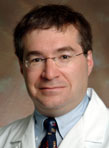 |
| Frank Anania |
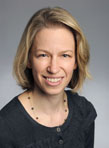 |
| Wendy Armstrong |
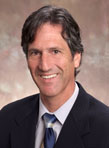 |
| Bruce Hershatter |
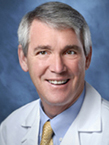 |
Mark Rapaport
|
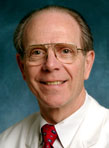 |
Steven Roser
|
Nate Flacker, Sheryl Heron, Jaffar Khan, Patricia Nichols, Barbara Pettitt, Louis Rapkin, David Schulman, and Stefan Tigges are the recipients of the 2011 Dean's Teaching Awards.
Frank Anania (medicine) was named an associate editor of Hepatology, the official journal of the American Association for the Study of Liver Diseases.
Wendy Armstrong (medicine) was elected to the board of directors of the HIV Medicine Association of the Infectious Diseases Society of America.
Jeffrey Boatright (ophthalmology) is president of the Association for Research in Vision and Ophthalmology, the largest vision research organization in the world. Boatright also is editor-in-chief of Molecular Vision.
Paul Doetsch (biochemistry, radiation oncology, and hematology and medical oncology) was appointed chair of the integration panel for the Department of Defense's Peer Reviewed Cancer Research Program.
James Fortenberry (pediatrics) was named to the board of trustees of the Children's Healthcare of Atlanta Foundation.
Bruce Hershatter (radiation oncology) was elected president of the Georgia Radiological Society.
Charles Moran (microbiology and immunology) was appointed to the Emory President's Advisory Committee as a basic science representative.
Thomas Pearson (surgery) was elected to the board of directors of the American Society of Transplantation.
Mark Rapaport (psychiatry) has been chosen as one of Prevention magazine's Integrative Medicine Award winners for 2011 in recognition of his research on how massage therapy can boost the body's immune system.
The award will be announced in
the December issue, which will be on newsstands in early November.
Steven Roser (surgery) received the Humanitarian Award from the the American Association of Oral and Maxillofacial Surgeons.
He has made numerous trips to Central and South America as a volunteer for Healing the Children-Northeast Inc., repairing cleft lips and cleft palates. Following the earthquake in Haiti last year, he was one of the first oral and maxillofacial surgeons to respond.
Nanette Wenger (medicine) was awarded the 2011 James B. Herrick Award for Outstanding Achievement in Clinical Cardiology by the American Heart Association Council on Clinical Cardiology.
William Wood (surgery) was appointed as a senior research fellow of the International Prevention Research Institute in Lyon, France, and as a board member of AfrOX, in Oxford, England. AfrOX works in Africa to implement cancer prevention programs.
|